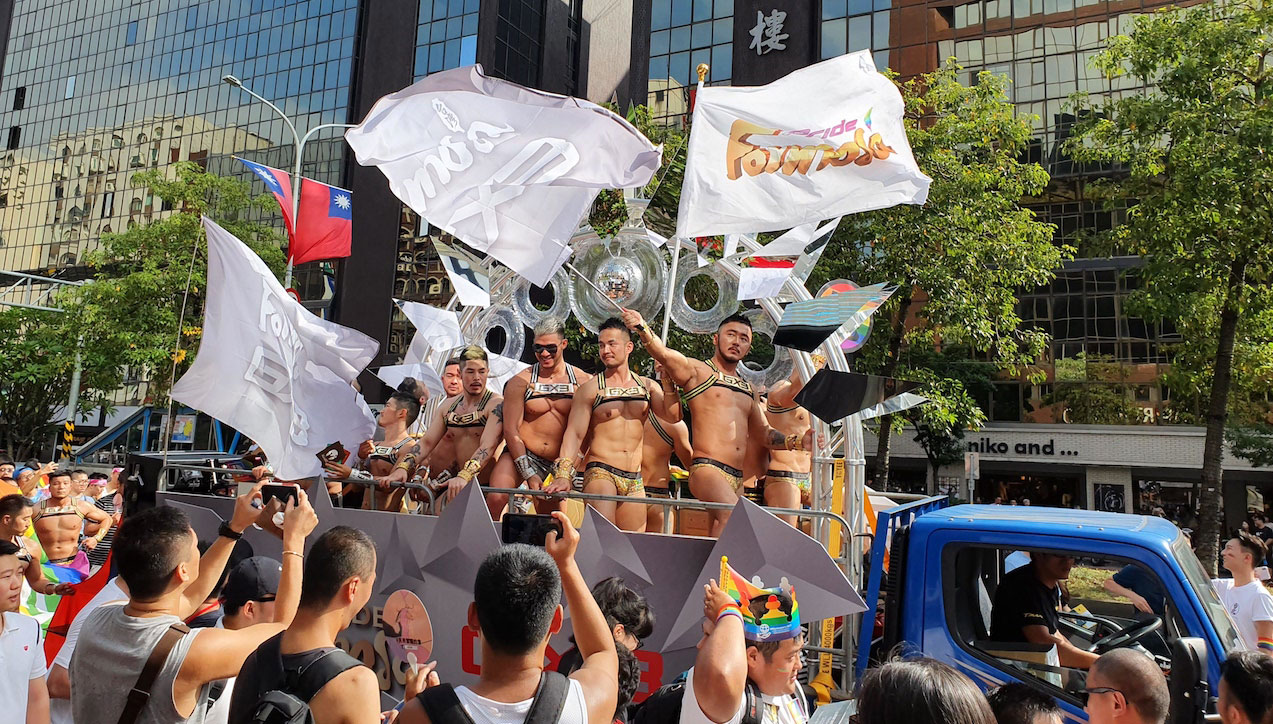THE PROMOTION OF the China Dream has had an increasingly visible, ambiguous, and complex impact on LGBTQ-related public discourse in China, and on the LGBTQ community itself. This was especially evident in 2019, when elsewhere in the Chinese-speaking world there were significant breakthroughs regarding both legal and political rights for LGBTQ people. On 17 May 2019, Taiwan became the first country in Asia to legalise same-sex marriage. On 30 May, the Hong Kong High Court overturned four laws that criminalised behaviour (such as anal sex) that was illegal only when carried out by gay men; it also revised three other laws.1 This progression of LGBTQ legal rights has enhanced the global reputation of both places for their sociocultural openness. In mainland China, homosexuality was decriminalised in 1997 and depathologised in 2001. While a realisation of mainland China’s own ‘queer dreams’ would help to promote a ‘positive and inclusive discourse’ domestically and benefit its global soft power,2 throughout the 2010s, the Party-state was ambivalent in both rhetoric and action.
The Party-state’s approach to including LGBTQ within the China Dream combines nationalism, China-centrism, cosmopolitanism, and neo-liberalism. For instance, on 18 May 2019, in an English post on Twitter (which has been blocked in mainland China since 2009), the party newspaper People’s Daily celebrated Taiwan’s move towards LGBTQ rights with a ‘Love Is Love’ GIF.3 At the same time, it attributed the decision to ‘local lawmakers in Taiwan, China’, subtly ‘owning’ legislation that applied only to same-sex couples in Taiwan, while asserting Beijing’s claim of sovereignty over the island.4 This was not the first time the People’s Daily had attempted to elevate China’s global status and promote national unity by alluding to LGBTQ rights. Back in April 2018, the online People’s Daily’s ‘Strong Nation Forum’ published a commentary that criticised Weibo’s censorship of homosexual content.5 However, the commentary — while implicitly depicting China as a socioculturally inclusive and diverse nation — also explicitly urged LGBTQ people to be well-behaved, socially responsible citizens.6 These sorts of official statements, circulated on both local and foreign social media, appear to be aimed more at bolstering China’s sociopolitical harmony than defending LGBTQ rights.
A major advance in LGBTQ rights in mainland China in recent years is the extension of officially notarised guardianship agreements to same-sex couples. China’s new legal guardianship system, in which ‘all adults of full capacity are given the liberty of appointing their own guardians by mutual agreement’, was amended by the National People’s Congress in March 2017.7 This was followed by the approval of same-sex guardianship by the Notary Office of Nanjing in late 2017 and then by the notary offices of Changsha, Chengdu, Guangzhou, Shanghai, Xiangyang, and Beijing in August 2019.8 While the Party-state has no intention of legalising same-sex marriage, the notarisation can be understood as part of the government’s commitment, given in March 2019, to comply with the UN Human Rights Council’s five anti-discrimination recommendations on LGBT+ issues.9
Since 2015, various LGBTQ communities in Shanghai have staged annual film events — the ShanghaiPRIDE Film Festival (ShPFF), CINEMAQ, and Shanghai Queer Film Festival — despite media censorship of homosexual content deemed to be promoting ‘vulgar’ or ‘abnormal’ content.10 In the case of the ShPFF, collaboration with foreign consulates enabled it to evade censorship.11
According to Bloomberg, there exists a US$300 billion ‘rainbow economy’ for LGBTQ merchandise in major cities such as Beijing, Shanghai, and Chengdu, as well as in Chinese cyberspace.12 There has even been a burgeoning ‘glocalised’ drag ball culture in Shanghai since the middle of the past decade.13
This surge and celebration of LGBTQ consumerism and culture coexist uneasily with the government’s smothering of agitation for greater gender and sexual equality, which challenges China’s hetero-patriarchal sociopolitical system and traditions of sexual morality.14 The Party-state clamps down on displays of rainbow signs or queer activist slogans in the mass media as well as on online shopping sites, and censors explicit scenes of homosexuality in imported movies (such as Bohemian Rhapsody), as well as feminist social media accounts and hashtags, such as #MeToo.15
This set of mixed policies allows politically innocuous LGBTQ-centred media and popular cultures to exist, and helps to promote a seemingly open-minded image to audiences both at home and abroad, while keeping more serious debates on human rights out of the public space.16 By managing ‘queer dreams’, the Party-state effectively neutralises the potential of these dreams to transform society while turning them into useful elements in China’s self-portrayal as a great modern nation on the global stage.



